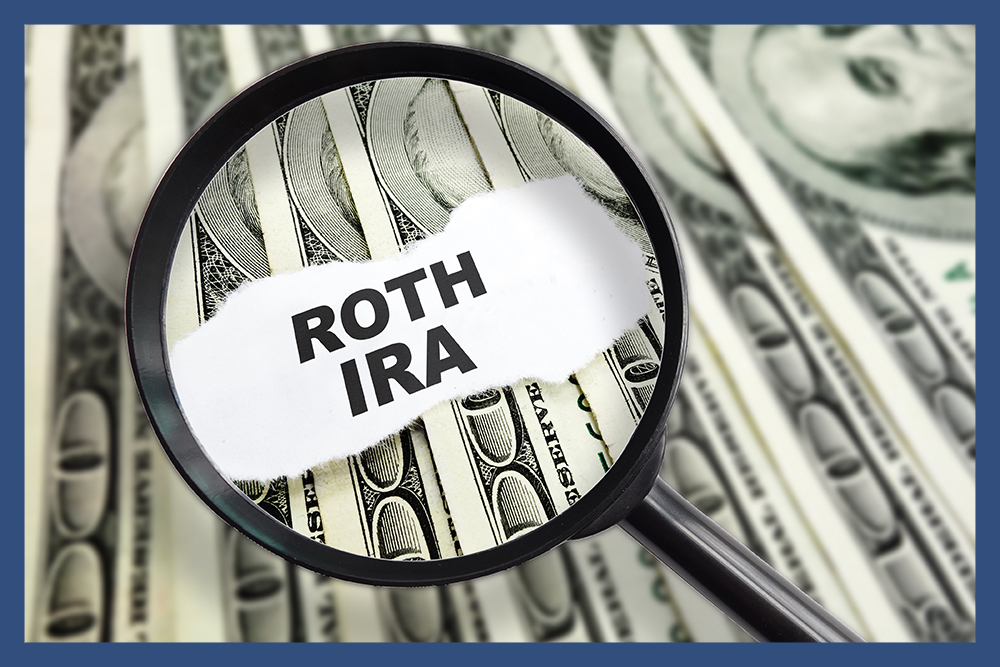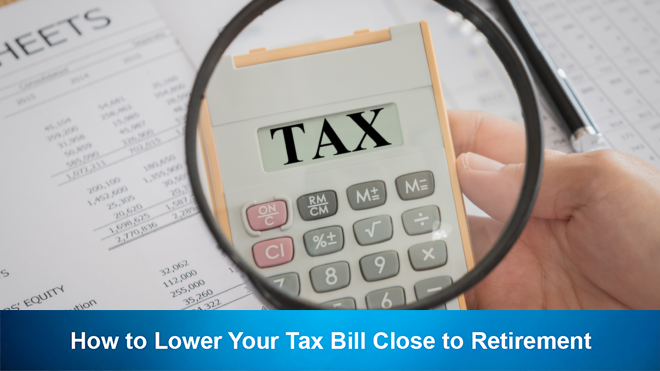When nearing retirement, many Americans look forward leaving tasks like tax planning behind with the working grind. However, planning strategically now can mean more funds for the things you love when you get there.
Many people have misconceptions about some of the basic facts of retirement financial planning and retirement advice. Unfortunately, these misunderstandings can lead to the difference between a retirement you want and a retirement you settle for. When thinking about how to plan retirement, have you thought about taxes?
Unfortunately, taxes are a necessary evil, and Uncle Sam is never far away. As you near retirement, it becomes even more important to hold on to your money and increase your savings. One way to do so is by lowering how much you pay in taxes.


What state do you want to retire in? Are you happy where you are because of friends and family? Or are you dreaming of spending your golden years in a sunnier, warmer destination? Despite the coronavirus pandemic, almost 400,000 Americans moved to a different part of the country to retire last year according to HireAHelper, up a whopping 30% from 2019.
Factors such as cost of living, healthcare, and weather tend to be high on people’s list of priorities when deciding where to relocate, but taxation is crucial too and can be easily overlooked. Retirees have specific financial concerns, and some states have taxes that are friendlier to those needs.
Seven states have no income tax at all, and Tennessee and New Hampshire only tax interest and dividends.
On the other end of the spectrum, California has a top tax bracket of 13.3%, meaning the Golden State isn’t topping the list of retirement-friendly places to spend your golden years.


We’ve said it before and we’ll say it again, the easiest way to trim your tax bill in retirement is to put money into a Roth IRA today.
As defined by RothIRA.com, a ROTH IRA is, “a special retirement account that you fund with post-tax income (you can’t deduct your contributions on your income taxes). Once you have done this, all future withdrawals that follow Roth IRA regulations are tax free.”
This incredible tax savings makes this type of financial investment very attractive to investors, especially those looking to plan for their retirement.
There are a few ways to open a Roth:
- You can contribute to a Roth IRA if you meet the contribution and income limits .
- You can contribute to a Roth 401(k) if your employer offers one.
- You can convert a traditional IRA to a Roth, via a backdoor Roth IRA .
It’s worth noting that with a Roth IRA, the tax break comes later. You put money into the account after paying taxes on it. That’s unlike a traditional IRA or 401(k), both of which give you an upfront tax break.
The maximum amount you can contribute to an IRA in 2022 is $7,000 if you’re 50 or older. If you’re looking to lower your tax bill, consider taking advantage of a traditional IRA.

Health care costs will likely be one of your top expenses in retirement. One way to begin prepping for those expenses is by using a health savings account (HSA). You can use retirement contributions and an HSA to help reduce your immediate tax liability. The high-deductible health plan you need to qualify for a HSA may be more budget-friendly than it seems because premiums are so low.
With an HSA, your account balance grows tax-free. Any interest, dividends, or capital gains you earn are nontaxable. Withdrawals for qualified medical expenses are tax-free. This is a key way in which an HSA is superior to a traditional 401(k) or IRA as a retirement vehicle.
If they’re made from your own funds, they’re considered to be made on a pre-tax basis, meaning they reduce your federal and state income tax liability—and they’re not subject to FICA taxes, either.


Baby Boomers, Americans born between 1946 and 1965, are carrying more mortgage debt than earlier generations at this life stage and are less likely than generations before to own their homes at retirement age, according to research from Fannie Mae’s Economic and Strategic Research Group.
Housing expenses, such as mortgage payments are among the highest costs retirees face. The less you need to withdraw from retirement accounts that require taxes on withdrawals, such as traditional IRAs and 401(k)s, the lower your tax bill.
Generally, it’s not a good idea to withdraw from a retirement plan such as an individual retirement account (IRA) or 401(k) to pay off a mortgage. If you withdraw before you turn 59½, you both incur taxes and early-payment penalties. If you’re retiring within the next few years and have the funds to pay off your mortgage, it may make sense for you to do so, particularly if those funds are in a low-interest savings account.

How much can catch-up retirement contributions help you? More than you might think. One of the most beneficial parts of a 401(k) plan is that it allows you to contribute pre-tax money, lowering your taxable income and tax bill.
Currently, catch-up contributions for those who have reached age 50 can contribute more to their plans, allowing them to have a more secure retirement. Here are the current catch-up contribution totals:
- 401(k) Plan: $6,500 in 2021 and 2022
- Traditional IRA: $1,000 in 2021 and 2022
- Roth IRA: $1,000 in 2021 and 2022
- SIMPLE IRA: $3,000 in 2021 and 2022
It does not matter if you set aside the extra savings in the form of a catch-up contribution or just by occasionally contributing more to a retirement savings account. Either way, you are giving savings a better chance to compound and grow, to help you financially in retirement.

It’s not farfetched to say nobody likes taxes. When it comes to retirement planning, a chunk of your Social Security benefits likely will be taxed, the money you take out of your traditional IRA and 401(k) will be taxed, and investments you have in a regular brokerage account may face taxes on capital gains and dividends.
Whether your retirement is decades away or just around the corner, we hope you found the above suggestions useful in finding ways to lower your taxes. If you still have questions, it’s best to seek the advice of a financial advisor with experience in designing tax-efficient wealth-management plans. To learn more about tax-efficient strategies and what options may be the best for you, contact CKS Summit Group today.



